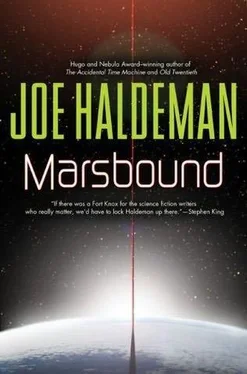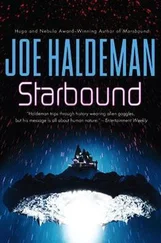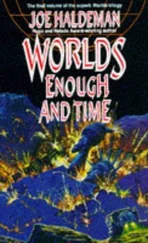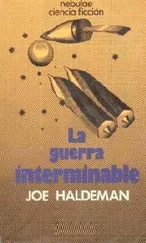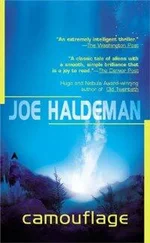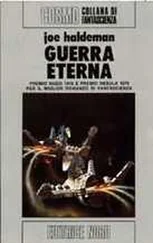Our lives were pretty regimented the first couple of weeks, because we had to coordinate classes with the work roster here, and leave a little time for eating and sleeping.
Everybody was impatient to get the first new module set up, but it wasn’t just a matter of unloading and inflating it. First there was a light exoskeleton of spindly metal rods that became rigid when they were all pulled together. Then floorboards to bear the weight of the things and people inside. Then the connection to the existing base, through an improvised air lock until they were sure the module wouldn’t leak.
I enjoyed working on that, at first outdoors, unloading the ship and sorting and preassembling some parts; then later, down in the cave, attaching the new to the old. I got used to working in the Mars suit and using the “dog,” a wheeled machine about the size of a large dog. It carried backup oxygen and power.
About half the time, though, my work roster put me inside, helping the younger ones do their lessons and avoid boredom. “Mentoring,” they called it, to make it sound more important than babysitting.
I hardly ever saw Paul. It’s as if whoever was in charge of the work details—guess who—took a special effort to keep us apart. One day, though, while I was just getting off work detail, he found me and asked whether I’d like to go exploring with him. What, skip math? I got fresh oxygen and helped him check out one of the dogs, and we went for a walk.
The surface of Mars might look pretty boring to an outsider, but it’s not at all. It must be the same if you live in a desert on Earth: you pretty much have the space around your home memorized, every little mound and rock—and when you venture out, it’s “Wow! A different rock!”
He took me off to the left of Telegraph Hill, walking at a pretty good pace. The base was below the horizon in less than ten minutes. We were still in radio contact as long as we could see the antenna on top of the hill, and if we wanted to go farther, the dog had a collapsible booster antenna that went up ten meters, which we could leave behind as a relay.
We didn’t need it for that, but Paul clicked it up into place when we came to the edge of a somewhat deep crater he wanted to climb into, then cross to the hill in the middle, its “central peak.”
“Be really careful,” he said. “We have to leave the dog behind. If we both were to fall and be injured, we’d be in deep shit.”
I followed him, watching carefully as we picked our way to the rim. Once there, he turned around and pointed.
It’s hard to express how strange the sight was. We weren’t that high up, but you could see the curvature of the horizon. The dog behind us looked tiny but unnaturally clear, in the near vacuum. To the right of Telegraph Hill, the pad where the John Carter had been raised to stand on its tail, waiting for the synthesizer to slowly make fuel from the Martian air.
Paul was carrying a white bag, now a little rust-streaked from the dust. He pulled out a photomap of the crater, unfolded it, and showed it to me. There were twenty X’s, with numbers from one to twenty, starting on the top of the crater rim, where we must have been standing, then down the incline, and across the crater floor to its central peak.
“Dust collecting,” he said. “How’s your oxygen?”
I chinned the readout button. “Three hours forty minutes.”
“That should be plenty. Now you don’t have to go down if you—”
“I do! Let’s go!”
“Okay. Follow me.” I didn’t tell him that my impatience wasn’t all excitement, but partly anxiety at having to talk and pee at the same time. Peeing standing up, into a diaper, trying desperately not to fart. “Funny as a fart in a space suit” probably goes back to the beginning of spaceflight, but there’s nothing real funny about it in reality. I’d taken two antigas tablets before I came out, and they still seemed to be working.
Keeping your footing was a little harder, going downhill. And it had been some years since I’d walked with a wet diaper. I was out of practice.
Paul had the map folded over so it only showed the path down the crater wall; every thirty or forty steps he would fish through the bag, take out a prelabeled plastic vial, and scrape a sample of dirt into it.
On the floor of the crater I felt a little shiver of fear at our isolation. Looking back the way we’d come, though, I could see the tip of the dog’s antenna.
The dust was deeper than I’d seen anyplace else, I guess because the crater walls kept out the wind. Paul took two samples as we walked toward the central peak.
“You better stay down here, Carmen. I won’t be long.” The peak was steep, and he scrambled up it like a monkey. I wanted to yell Be careful, but kept my mouth shut.
Looking up at him, the sun sinking under the crater’s rim, I could see Earth gleaming blue in the ochre sky. How long had it been since I had thought of Earth, other than “the place where school is”? I guess I hadn’t been here long enough to feel homesickness. Nostalgia for Earth—crowded place with lots of gravity and heat.
It might be the first time I seriously thought about staying. In five years I’d be twenty-four, and Paul would still be in his early thirties. I didn’t feel as romantic about him as I had on the ship. But I liked him and he was funny. That would put us way ahead of a lot of marriages I’d observed.
But then how did I really feel about him? Up there being heroic and competent and, admit it, sexy.
Turn down the heat, girl. He’s only twelve years younger than your father. Probably sterile from radiation, too. I didn’t think I wanted children, but it would be nice to have the option.
Meanwhile, he would be fun to practice with.
He collected his samples and tossed the bag down. It drifted slowly, rotating, and landed about ten feet away. I was enough of a Martian to be surprised to hear a faint click when it landed, the soles of my boots picking the noise up, conducted through the rock of the crater floor.
He worked his way down slowly, which was a relief. I was holding the sample bag; he took it and made the hand signal for turn off your communicator. I did, and he stepped over close enough to touch helmets. His face close enough to kiss. He spoke, and his voice was a faraway whisper. “Can you come sleep with me tonight?”
“Yes! Oh, yes.”
“My roommate’s putting in an extra half shift, from 1800 to 2300. Are you free during that time?”
“Class till 1900, but then, sure.”
He gave me an awkward squeeze. Hard to be intimate in a Mars suit, but I could feel his gloves on my shoulders, the welcome pressure of his chest.
He turned his comm back on and gave me a mischievous wink. I followed him back the way we had come.
At the top of the crater wall, he stopped and looked back. “Can’t see it from here,” he said. “I’ll show you.”
“What?”
“My greatest triumph,” he said, and started down. “You’ll be impressed.”
He didn’t offer any further explanation on the ground. He picked up the dog’s handle and proceeded to walk around to the other side of the crater.
It was a dumbo, an unpiloted supply vehicle. Its rear end was tilted up, the nose down in a small crater.
“I brought her in like that. I was not the most popular man on Mars.” As we approached it, I could see the ragged hole someone had cut in the side with a torch or a laser. “Landed it right on the cargo-bay door, too.”
So that was how he’d become “Crash” Collins. “Wow. I’m glad you weren’t hurt.”
He laughed. “It was remote control; I landed it from a console inside the base. Harder than being aboard, actually.” We turned around and headed back to the base.
Читать дальше
